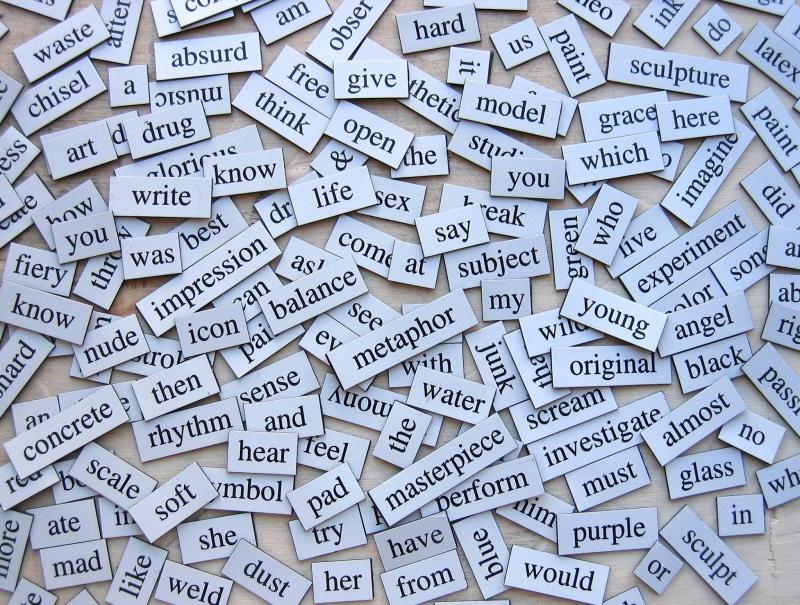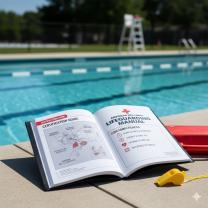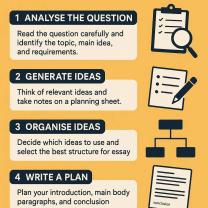How do you remember vocabulary words?
Remembering vocabulary words can be challenging, but there are several effective techniques and strategies to help you master and retain new words. Here are some tips to improve your vocabulary memory:
Contextual Learning:
- Learn words in context. Read sentences or passages containing the new words, so you understand how they are used. This helps create connections and provides a deeper understanding of the word's meaning.
Use Mnemonics:
- Create mnemonic devices or memory aids to associate new words with familiar words, sounds, or images. Mnemonics can make it easier to recall and retain vocabulary.
Flashcards:
- Create flashcards with the word on one side and the definition, example sentence, or a mnemonic on the other. Review the flashcards regularly, testing yourself on the words and their meanings.
Associations:
- Associate new words with words you already know. Create mental connections or stories that link the new words to familiar concepts, making them easier to remember.
Word Maps:
- Create word maps or semantic webs to visually organize and connect related words. This helps you see the relationships between words and enhances memory.
Repetition:
- Repetition is key to memory. Practice using new words in sentences, write them down, and say them out loud. The more you repeat and use the words, the more likely you are to remember them.
Chunking:
- Group words into meaningful chunks or categories. Breaking down a long list of words into smaller, manageable groups makes learning more manageable and enhances retention.
Word Games and Puzzles:
- Engage in word games and puzzles like crosswords, Scrabble, or word searches. These activities make learning vocabulary enjoyable and stimulate your brain.
Create a Vocabulary Journal:
- Keep a vocabulary journal or notebook. Write down new words along with their definitions, example sentences, and any personal notes. Review your journal regularly.
Utilize Technology:
- Use vocabulary-building apps, online resources, or language learning platforms that offer interactive ways to learn and practice new words.
Teach Someone Else:
- Teach the new words to someone else. Explaining concepts to others reinforces your understanding and helps you remember the words more effectively.
Read Extensively:
- Read regularly in the language you're learning. Exposure to words in different contexts and usage contributes to a richer vocabulary.
Create Sentences:
- Practice using new words in sentences. This not only reinforces the meaning but also helps you understand how the words fit into different grammatical structures.
Visual Imagery:
- Create mental images associated with the words. Visualization can enhance memory, especially for concrete nouns and vivid adjectives.
Set Goals:
- Set achievable vocabulary goals. Focus on learning a specific number of words each day or week, and track your progress.
Remember that consistency and active engagement are key to vocabulary retention. Experiment with different methods to find what works best for you, and integrate these strategies into your daily language-learning routine.
What are effective strategies for memorizing vocabulary words?
Memorizing new vocabulary can be challenging, but there are a number of effective strategies that can help you to retain information and improve your language skills. Here are some tips:
Use spaced repetition. Spaced repetition is a learning technique that involves revisiting new information at increasing intervals. This can help to strengthen the neural pathways in your brain that are associated with the new information, making it more likely that you will remember it in the long term.
Create associations. One way to make new vocabulary words more memorable is to create associations between them and things that you already know. For example, if you are learning the word "serendipity," you could try to think of a time when you experienced serendipity in your own life.
Use flashcards. Flashcards are a classic tool for memorizing vocabulary. You can create your own flashcards or use a pre-made deck. When using flashcards, make sure to test yourself regularly on the new words.
Use mnemonics. Mnemonics are memory devices that can help you to remember information. There are many different types of mnemonics, such as acronyms, acrostics, and rhymes.
Practice using the words. The best way to learn new vocabulary is to use it in your own writing and speaking. This will help you to solidify your understanding of the words and make them more likely to stick.
How do memory techniques aid in retaining new vocabulary?
Memory techniques can help to retain new vocabulary in a number of ways. First, they can help to make the information more memorable by creating associations between the new words and things that you already know. Second, they can help to organize the information in a way that makes it easier to remember. Third, they can help to increase your motivation to learn the new words.
Are there mnemonic devices or apps recommended for learning vocabulary?
Here are a few mnemonic devices and apps that can help you to learn vocabulary:
Acronyms: An acronym is a word formed from the first letter of each word in a phrase. For example, the acronym "ROY G. BIV" can help you to remember the colors of the rainbow (red, orange, yellow, green, blue, indigo, violet).
Acrostics: An acrostic is a poem or sentence in which the first letter of each line spells out a word or phrase. For example, the acrostic "P-lease E-xcuse M-y E-rror A-lthough I S-trive T-o B-e R-ight" can help you to remember the spelling of the word "perimeter."
Rhymes: Rhymes can help you to remember new vocabulary by making them more fun and engaging. For example, the rhyme "Thirty days has September, April, June, and November..." can help you to remember the number of days in each month.
Memrise: Memrise is a popular vocabulary learning app that uses a variety of memory techniques to help you learn new words.
Anki: Anki is another popular vocabulary learning app that uses spaced repetition to help you learn new words.












